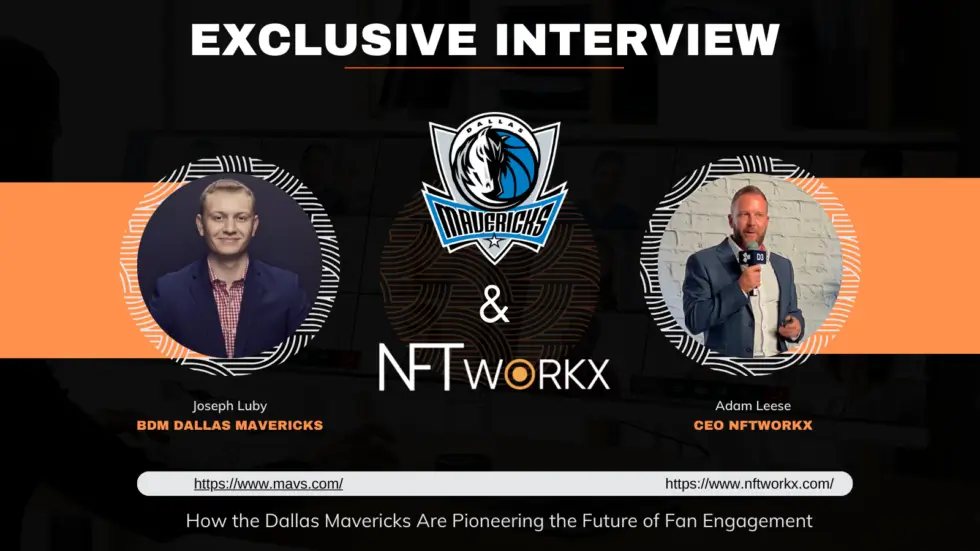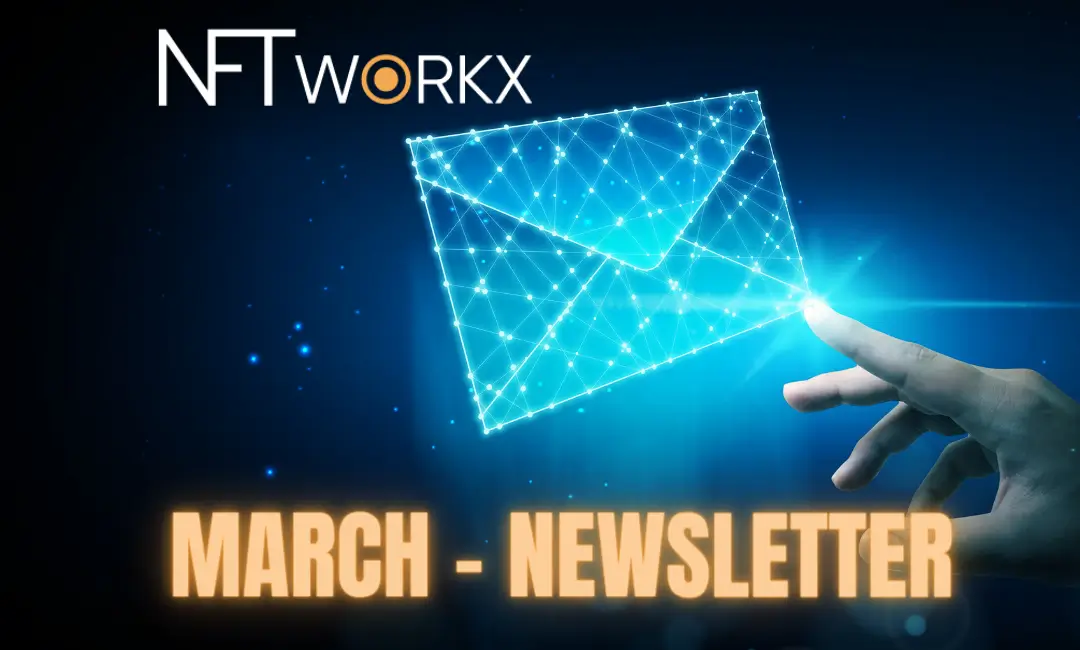NFTs, or non-fungible tokens, have had a bumpy ride this last year. But one thing nobody can argue with, is their potential impact on ecommerce.
In this article, we will explore:
- the basics of NFTs
- their intersection with ecommerce
- real-world applications
- biggest challenges
- the future of NFT ecommerce
Understanding the Basics of NFTs
If you’re a tech enthusiast, you already know NFT stands for non-fungible token.
For those just now discovering this powerful tech, let’s go over the basics. Unlike cryptocurrencies such as Bitcoin or Ethereum, NFTs are not interchangeable or divisible.
Each NFT is distinct and holds a unique value. They are typically created on blockchain platforms, which provide a decentralised and transparent environment for ownership and transactions.
So, what exactly is an NFT?
An NFT can be any digital file, such as artwork, music, videos, collectibles, or even virtual real estate. These digital assets are tokenized, meaning they are assigned a unique token that represents ownership. Once tokenized, NFTs can be bought, sold, and traded just like physical assets in the real world.
Let’s dive deeper into the world of NFTs and explore their characteristics and functionalities.
How Do NFTs Work?
NFTs are built on blockchain technology, which ensures the security and authenticity of the digital assets. Blockchain acts as a decentralised ledger, recording all transactions and ownership details. This transparency prevents fraud and ensures that each NFT has a provable history.
To create an NFT, artists or creators mint their digital assets on specific platforms, such as Ethereum. Minting refers to the process of turning a regular digital file into a unique tokenized asset. Once minted, the NFT is assigned a unique token, which verifies its authenticity and ownership.
They can then be listed for sale on various marketplaces, where collectors and enthusiasts can purchase them using cryptocurrency. These marketplaces act as a platform for artists to showcase their work and for buyers to discover and acquire unique digital assets.
When an NFT is sold, the transaction is recorded on the blockchain, ensuring a transparent and immutable record of ownership. The creator of the NFT often receives a percentage of the sale price, known as a royalty or commission, which allows them to continue creating and monetizing their work.
The Rise of NFTs
The emergence of NFTs has opened up new possibilities in the digital world. Artists and creators now have the opportunity to monetize their digital creations in ways that were previously not possible.
NFTs have also sparked a new wave of digital art and collectibles, with artists experimenting with new mediums and concepts.
Collectors and enthusiasts are drawn to NFTs for various reasons. Some see them as a way to support their favourite artists directly, while others view them as a potential investment opportunity.
The scarcity and uniqueness of NFTs make them highly sought after, with some fetching astronomical prices in the marketplace.
As the world becomes more digital, NFTs offer a new way to own and appreciate digital assets. They bridge the gap between the physical and digital realms, allowing us to own and trade unique digital items that hold sentimental or monetary value.
It is important to note that the NFT market is still relatively new and evolving. As with any emerging technology, there are debates and discussions surrounding its environmental impact, copyright issues, and the long-term value of digital assets. However, one thing is clear — NFTs have captured the attention of the world and are here to stay.
The Intersection of NFTs and Ecommerce
The world of ecommerce has experienced tremendous growth in recent years. However, traditional ecommerce platforms can be limited in terms of the types of products that can be sold.
NFTs present an opportunity to expand the possibilities of ecommerce and redefine the concept of ownership in the digital realm.
The Current State of Ecommerce
Traditional ecommerce platforms have made it possible to buy and sell physical products online, revolutionising the retail industry.
Online marketplaces such as Amazon and eBay have become household names, providing convenience and accessibility to consumers worldwide. However, these platforms primarily focus on physical goods and do not fully cater to the digital realm.
While the rise of digital products, such as ebooks, music, and video streaming, has led to the emergence of digital marketplaces, they still struggle to offer true ownership and scarcity.
Customers can purchase and access digital content, but they do not have the same sense of ownership as they would with a physical product. This limitation has created a gap in the market for a solution that bridges the gap between digital and physical ownership.
How NFTs Can Revolutionise Ecommerce
NFTs have the potential to revolutionise ecommerce by introducing true digital ownership. Imagine owning a piece of art, a virtual property, or an exclusive collectible that cannot be duplicated or counterfeited. NFTs provide a solution to the problem of digital scarcity, allowing artists and creators to monetize their work in a secure and transparent manner.
With NFTs, creators can tokenize their digital assets, making them unique and indivisible. Each NFT is stored on a blockchain, providing a public record of ownership and authenticity. This technology ensures that buyers can trust the provenance and value of their digital assets, creating a new level of confidence in the digital marketplace.
NFTs often enable creators to earn ongoing royalties from secondary sales.
Although many marketplaces have made creator royalties optional, we believe this trend will change with market dynamics.
Smart contracts embedded within NFTs can automatically distribute a percentage of each resale back to the original creator. This groundbreaking feature ensures that artists can continue to benefit from the increasing value of their work, even after the initial sale.
Additionally, the intersection of NFTs and ecommerce opens up new avenues for collaboration and creativity. Artists can partner with brands and retailers to create limited-edition NFT collections, offering exclusive digital products to their customers. This collaboration not only provides an exciting experience for consumers but also allows creators to reach new audiences and expand their brand presence.
On top of this, NFTs can enhance the gamification of ecommerce. Imagine a virtual treasure hunt where participants can collect NFTs as they navigate through a digital world. These NFTs can then be redeemed for exclusive discounts or experiences, creating a sense of excitement and engagement for customers.
To sum it up, they have the potential to redefine the concept of ownership in the digital realm and revolutionise the ecommerce industry.
By introducing true digital ownership, enabling ongoing royalties, and fostering collaboration and gamification, NFTs open up a world of possibilities for creators, brands, and consumers alike.
Real-World Applications of NFT Ecommerce
The potential applications of NFT ecommerce are vast and varied. From digital art to virtual real estate, NFTs have already found success in several industries. Let’s explore some case studies and potential future applications.
Case Studies of Successful NFT Ecommerce
One notable example of NFT ecommerce success is the sale of Beeple’s digital artwork, “Everydays: The First 5000 Days,” for a staggering $69 million. This sale marked a significant milestone in the acceptance and recognition of digital artwork as valuable assets.
Another example is NBA Top Shot, an NFT marketplace where fans can buy and trade officially licensed NBA collectibles in the form of highlight videos. This platform has gained massive popularity, attracting millions of users and generating millions in transactions.
Potential Future Applications
The potential future applications of NFT ecommerce are virtually limitless. Virtual fashion, virtual real estate, and virtual experiences could redefine the way we interact with digital content. Imagine buying a virtual outfit for your digital avatar or owning a piece of virtual land in a metaverse.
Additionally, NFTs can be used to authenticate physical goods, ensuring their provenance and authenticity. [Times of India]
These digital certificates of authenticity can help combat counterfeiting and promote transparency in supply chains.
Challenges and Solutions in NFT Ecommerce
While NFT ecommerce has immense potential, there are also challenges that need to be addressed for widespread adoption. Legal and ethical considerations, as well as technological challenges, require careful attention.
Legal and Ethical Considerations
As with any new technology, legal and ethical issues arise. Ownership rights, copyright infringement, and intellectual property protection are among the key concerns in the NFT space.
Clear guidelines and regulations need to be established to ensure fair practices and protect the rights of artists, creators, and buyers.
Technological Challenges and Solutions
Scalability and environmental impact are two significant technological challenges facing NFT ecommerce. The current blockchain infrastructure can be slow and energy-intensive, leading to high transaction fees and carbon footprints.
However, ongoing development and exploration of alternative solutions, such as layer 2 solutions and proof-of-stake mechanisms, offer promising alternatives to mitigate these challenges.
The Future of NFT Ecommerce
As NFTs continue to develop, the future of NFT ecommerce looks promising. Several trends and considerations will shape the direction of this emerging industry.
Predicted Trends in NFT Ecommerce
We can expect to see increased integration of NFTs into existing ecommerce platforms, making it easier for users to buy and sell digital assets. The gamification of NFTs and virtual experiences will create new opportunities for businesses and consumers alike. [bolt.com]
How to Prepare Your Business for NFT Ecommerce
If you’re a business owner looking to embrace NFT ecommerce, it’s essential to stay informed and adapt to the evolving landscape.
Educate yourself on the intricacies of NFTs, explore partnerships with artists and creators, and consider minting your unique digital assets. By staying ahead of the curve, you can position your business for success in the exciting world of NFT ecommerce.
As NFTs continue to disrupt traditional notions of ownership and revolutionise ecommerce, it’s crucial to understand their basics, explore their intersection with ecommerce, analyse real-world applications, address challenges, and consider the future trends.
By releasing the potential of NFT ecommerce, businesses and individuals can embrace new opportunities and adapt to the ever-changing digital landscape.














